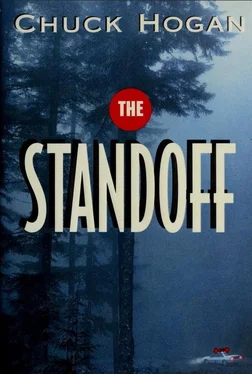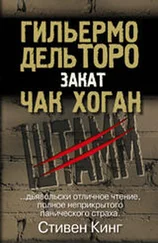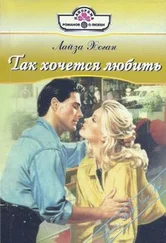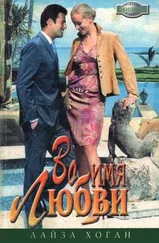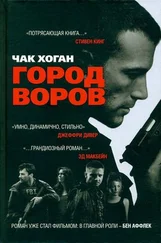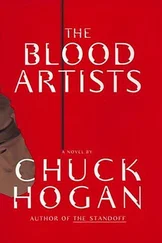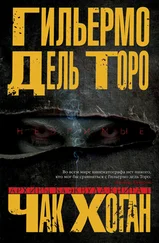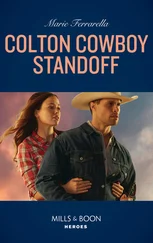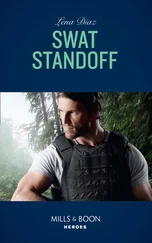“Hey,” said Banish.
The youth passed him a folded handbill. Banish noted his sharp-edged rings and scarred knuckles.
“Meeting tonight behind the barricade,” the young man said. “Bring a friend.”
He turned and walked back into the trees. Banish looked after him, then down at the crude handbill, entitled AMERICA’S PROMISE. He recognized its general slant without having to bring out his glasses, and stuffed it deep into his coat pocket.
Sheriff Blood found himself shaking his head. He was watching uniformed men walking past in groups of four and five like soldiers, and feeling the mountain rumble again as another helicopter landed on the weed field behind him, and choking on Jeep exhaust. He was standing in the rain in the middle of the mountain clearing and actually shaking his head back and forth, slowly, so that the runoff from the brim of his plastic-wrapped cowboy hat ran down his already soaked black hair and trickled into his coat collar — and he was marveling. These were professional movers and the world was full of furniture. He would have to take special care not to be brushed aside.
A man approached him wearing a trucker’s cap and an army-style coat. His shoes were muddy, maybe even ruined, and he was soaked through with rain, though it didn’t seem to bother him. He was older, fifty, with sharp eyes and a wary face that put Blood immediately on his guard.
Blood turned fully toward him as he came. The stranger nodded in greeting. Blood nodded back.
“Evening,” the stranger said. He wore no identification. His hands were open and empty.
“Evening,” Blood said.
The stranger made a move for his breast pocket. Blood stiff-armed him, kind of casually, grabbing the man’s wrist and sweeping open his own sheriff’s coat and baring his .38.
“Easy now,” said Blood.
The stranger completed his action, slowly withdrawing a thin billfold and showing Blood his identification card with photo and badge. “FBI,” the man said, just as it read on the card in blue block letters.
Blood released the man’s wrist and returned his own hands to his coat pockets, but did not take his eyes off the agent, whose name he did not catch.
The agent put away his ID. “Chief of Police didn’t even flinch,” he said in a rich voice cutting sharply through the spilling rain.
“If it’s reaction you wanted,” Blood said, “you should have tried reaching for his wallet, not yours.”
The agent’s eyes went a little narrower, as though reappraising Blood. Seeing them move in his face and betray some of the thinking going on behind them was like watching a rock forget it was a rock and try to speak.
The agent said, “How many skinheads do you have around here, Sheriff?”
Blood figured his face did a little betraying of its own then. “A few,” he said. “Our share.”
“How many unattended deaths?”
Blood didn’t like that question either. The agent had used the local terminology for “unexplained deaths,” but it seemed to Blood that he was being talked down to.
“Eight total,” Blood said, making as though he had to think about it.
The agent nodded. “How many of those were Indians, like you?”
Small, unshaved hairs stood up on the back of Blood’s neck. He made his displeasure evident this time. “Six,” he said, further studying the agent’s face.
“High percentage,” the agent said. “I see this man Ables has quite a following around here.”
“He has his supporters.”
“Your constituents.”
Only then did it dawn on Blood. The two of them had all along been matching wits. This stranger had been running circles around him while Blood was busy playing catch-up Q and A. Now that he knew what the game was, Blood relaxed a little, as was his way, slacking off like a fisherman sitting back in a trawler chair and playing out line.
“You’re asking whose side I’m on,” he said.
“Just getting the lay of the land,” said the agent. “I’m trying to decide whether or not you belong on this mountain.”
Blood nodded. Rain pattered the ground and rapped loudly atop his hat. “You like to play games,” he said. “You must be in charge now.” He pulled the eviction notice out of his pocket and unfolded it slowly in the rain, revealing the bullet hole. “This is my ticket to the big show,” he said.
“We’ll see about that. Deputies?”
“Nope.”
“Up here alone?”
“Yep, but I’m already spoken for.”
The agent nodded without remark. “Command tent, seven o’clock,” he said, then walked away.
Blood watched him go. He rubbed the back of his neck under his long hair, smoothing over his rancor. The rain came down in strings around him. Unattended deaths. He wanted to know just how this agent had gotten under his skin so quick. Blood promised himself that the next time they locked horns, he would be better prepared.
It was seven o’clock on the dot and Perkins was seated and ready in a folding chair in front. The chicken fricassee which had been perpetrated that evening by the American Red Cross was still very much in his mouth. He took a drink of hot black coffee and swished it around with his tongue, hoping to wash out the filmy taste. Then he looked at the cup. He felt the stickiness of his hand. It was a cold-drink cup that the Red Cross had given him, and the hot coffee was softening it, sweating the outside and melting the inner coating, so that small slicks of wax now floated on the surface of the liquid. He frowned and stood, holding the cup away from his clothes, trying not to draw any attention to himself. He set the mess in a plastic-lined wastebasket and then sat back down, scraping his pasty tongue with his front teeth.
His Assistant Special Agent in Charge, Hardy, sat behind him flipping pages in a small notebook. Fagin sat to Perkins’s far left, still wearing his cap, vest, and all his gear, at least twenty pounds of extra weight hanging on his frame. He was blowing thick white cheroot smoke and his legs were spread broadly off the edge of the folding chair for maximum comfort. It was a good show. Anyone who expended that much energy trying to convince people he was a maverick had to be a real ass, never mind in the wrong profession. The U.S. Marshals were known as team players through and through. The operation was full FBI jurisdiction now, the marshals present only under Banish’s command, thereby diminishing Fagin’s role and strengthening Perkins’s position as the number-two man on the mountain.
The Spokane FBI Field Office was also represented, as were Montana Resident Agencies such as Kalispell, Missoula, and Great Falls. Lower-echelon Bureau and Marshal supervisory officials occupied the rest of the folding chairs.
The tent was drafty, sheets of rain blowing and rippling the tightly stretched roof and side walls. Unshaded bulbs were strung overhead and the work light was spotty, the slightest movement followed by three or four different shadows. Wires from facsimile machines and computers and telephones snaked along the lumpy canvas floor, and a generator rumbled somewhere outside, beyond the rear wall they were facing. The enlarged flyby surveillance photograph hanging on the wall showed in grainy black and white the cabin and its grounds, including the wide, elevated back porch on which Glenn Ables could be seen standing, small but unmistakable, giving the helicopter the finger.
Banish entered at five after seven. He passed around photographs first. Perkins had already reacquainted himself with the family bios and was prepared for any queries. Ables looked like a cocky little so-and-so in his two-year-old front and side mug shots. Blond buzz haircut, squirrel eyes, arrow nose, long ears, and a wide, grinning chin. Challenging the camera, not just standing in front of it. A bantamweight, short and wiry, early forties. The kind of man who gets a few in him and goes around picking fights just to prove how scrappy he is.
Читать дальше
